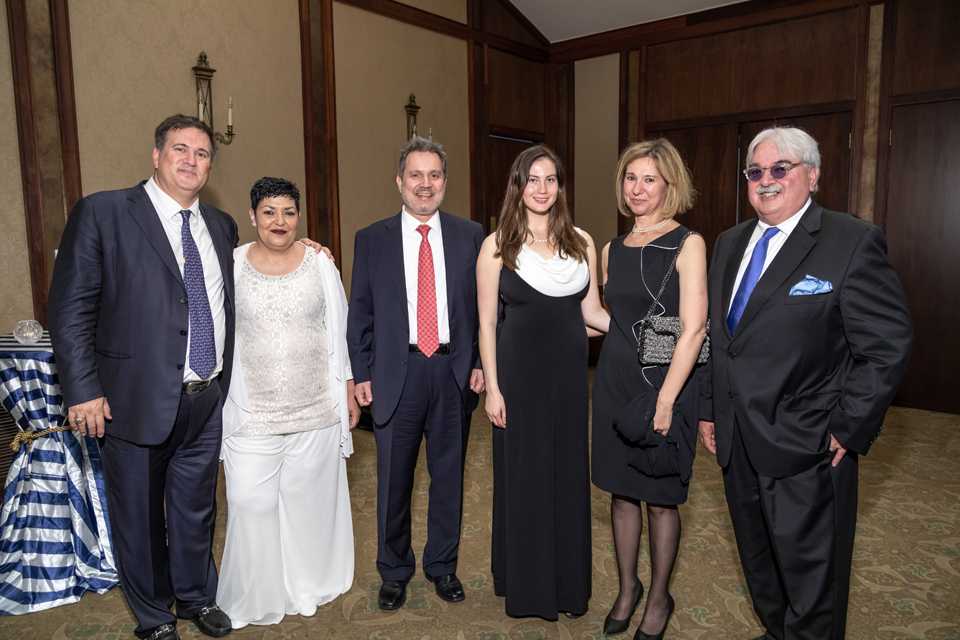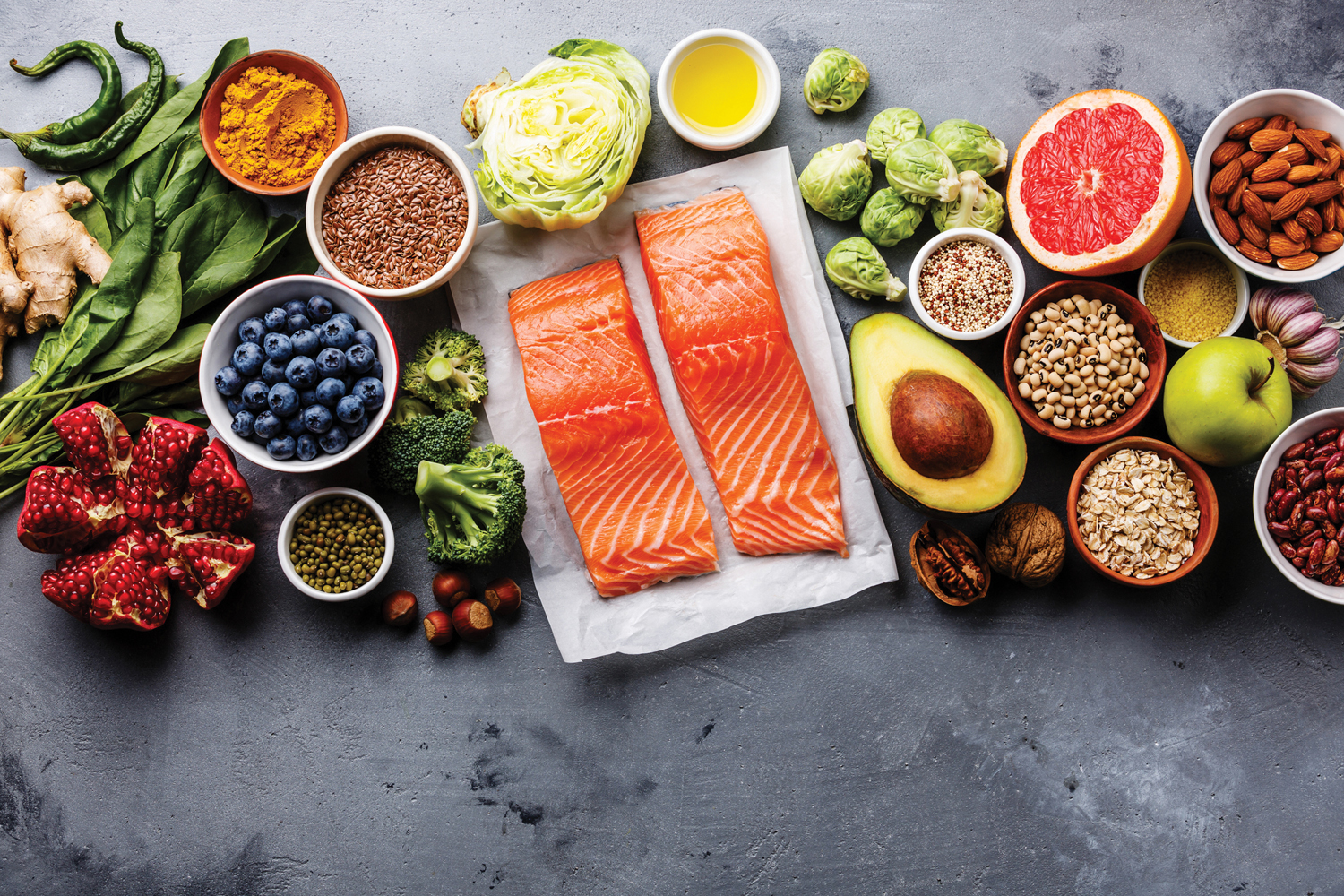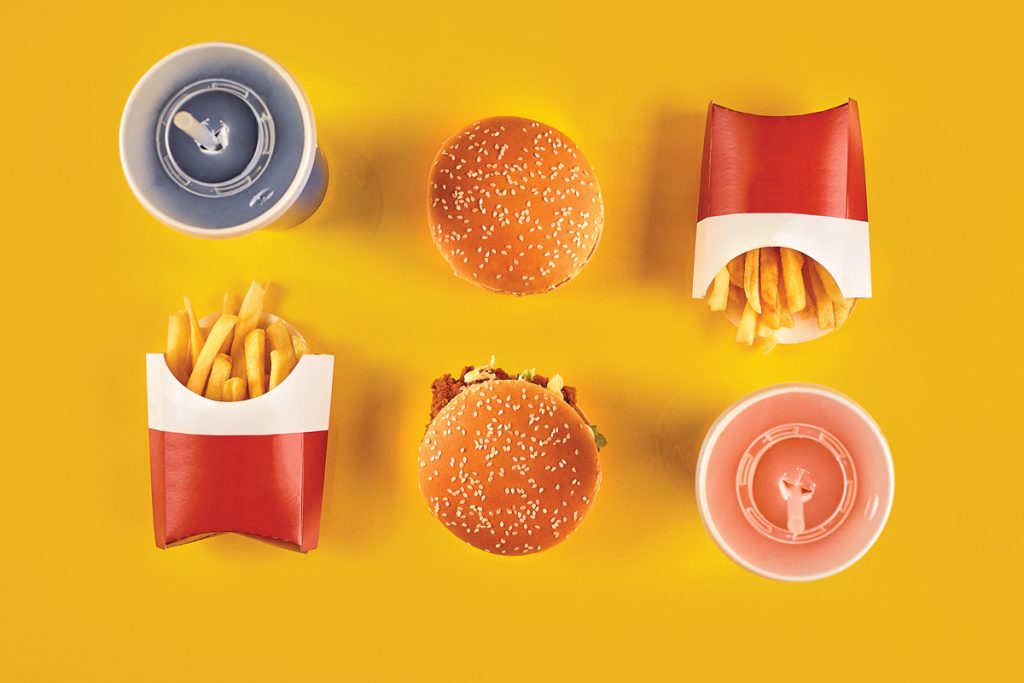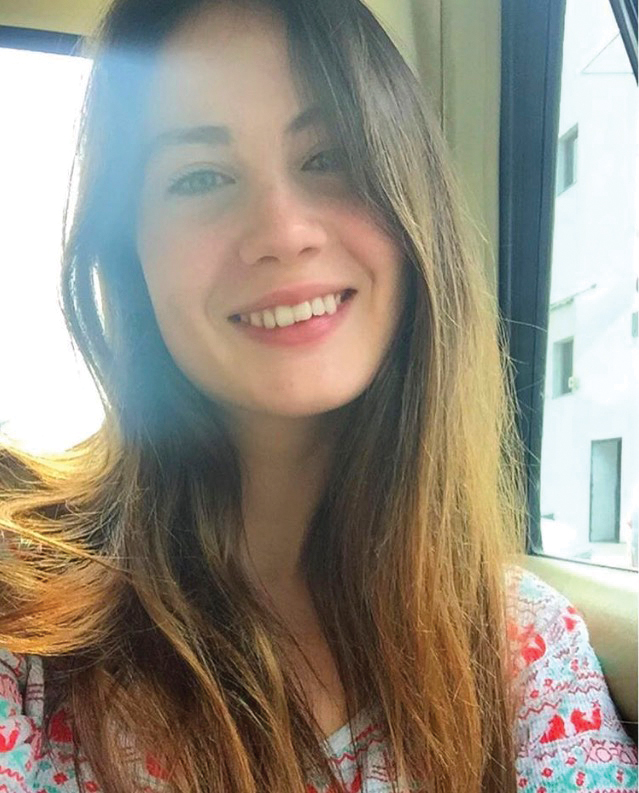
Pictured from left, Tony and Emily Panagiotareas, Ambassador Haris Lalacos, Sumer Loggins, Anna Michalopoulou and Rick Clapp.
The Ambassador of Greece to the United States, Harris Lalacos, made his first official visit to Houston. Bay Group Media CEO Rick Clapp and I graciously accepted the invitation to attend the honorary celebration. The commemorative dinner reception on March 24 at Lakewood Yacht Club included distinguished guests Rear Adm. Paul Thomas commander of the Eighth Coast Guard District, Houston mayoral candidate Bill King, Col. Michael Fossum former American astronaut and COO of Texas A&M University at Galveston, League City Mayor Pat Hallisey, R.W. Bray Southeast Texas Deputy Regional Director for Sen. Ted Cruz, the Consul of Greece Ioannis Stamatekos, the Hellenic Attaché for Maritime Affairs Koutsodontis Nikolaos, Admiral Mike Rodriguez, superintendent of the Texas Maritime Academy, and Port of Houston Executive Director Roger Guenther and Senior Director Charlie Jenkins. Ambassador Lalacos succinctly presented the importance of Greek-American relationships which focuses on energy, maritime shipping, and tourism. Greeks are leading pioneers of the sea for the last 3,500 years with the largest merchant marine fleets in the world, comprising 20% of all merchant vessels. Ambassador Lalacos said, “I’m glad I represent a country which is recognized as a stability provider in our region, as a reliable ally in NATO, a friend of the United States, and a country which has never had a conflict with the United States ever since our respective independence.”
International trade is dependent on Greek-owned ships which provides security, research, and resources that connect people around the world. “Greece is the champion of energy diversification in our part of the world,” says Lalacos. Greece has one of the largest terminals for LNG and plans to build a second terminal in Northern Greece. LNG is cleaner, safer, and takes up about 1/600th the volume of natural gas in the gaseous state. Liquified natural gas is non-toxic, non-corrosive, and more efficient to transport. Greece has managed to secure a major pipeline that brings Azari natural gas from the Caspian sea, passing through land bordering Turkey and transported to Northern Greece, Albania and the Adriatic Sea, to Southern Italy and on to Europe. “We have very solid plans and strong American support to enrich amounts of this pipeline and to build vertical interconnectors going from Greece Northbound. This will revolutionize gas flows in our part of the world.” asserts Lalacos. Their newest project, the Eastern Mediterranean Pipeline, with help from the United States and European Union, will bring through Italy a deepwater pipeline with natural gas from Israel, Cyprus, Egypt, and Greece. Israel has already found natural gas reserves but they need more pipelines to distribute it to the world market. Recently ExxonMobil had positive results with exploratory drilling offshore South of Cyprus, and Egypt discovered natural gas in the Mediterranean. Next, ExxonMobil will be drilling South of Crete while multinational companies drill on and offshore in the Western Part of Greece. “We are hopeful to diversify energy flow and production in the Eastern Mediterranean Basin. This may take place in the next decade.” says Lalacos.
Texas is the largest natural gas producer globally and a world leader in the chemical and petrochemical industry. Houston is an international hub for shipping and energy, which are two areas of primary importance to Greece. We are one of eight cities in the United States with a Greek Consulate, and one of two with a Coast Guard Consulate. Private-owned companies with sustainable solutions take the lead in global partnerships to expand energy sources. Oceanus Maritime Services LLC is a Greek-owned company with headquarters in League City. Oceanus started as an idea between business partners Tony Panagiotareas and Kent Dangtran, and now represents a fleet of 500 vessels belonging to 40 shipping companies. They are one of few companies in Texas to hold an International Ship Management Certificate to operate commercial vessels. Oceanus Maritime leads efforts to assist Greece in developing their energy reserves. The International Maritime Organization (IMO) addresses the human health and environmental impact of the oil and gas industry. In 2020 new regulations will implement that all ships must reduce sulphur fuel content to 0.5% 200 nautical miles from the shoreline. This demonstrates a clear commitment by IMO to ensure shipping meets environmental obligations.
Greece celebrated Greek Embassy’s Official Independence Day at Annunciation Greek Orthodox Cathedral in Houston for the first time in history. On March 25 1821, Greek revolutionaries fought for their freedom and victoriously won against the Ottoman Empire. They established hard-earned independence in 1830. The festivities were hosted by the Consul of Greece Ioannis Stamatekos and over 200 Houstonians. The Pappas family graciously donated beautiful selections of wines and Nikos Nikos provided an elegant dinner. It was quite a traditional Greek experience. Besides the exciting opportunities for energy development, Ambassador Lalacos says, “The help that we need is not grants, it’s investment; mutually advantageous, profitable investment. When it comes to investment, the greatest asset [of Greece] is its well-educated workforce.”
This three day weekend of Greek hospitality and festivities elucidates the importance of working together. We have common goals of peace, prosperity, and positive international relationships. We all want independence, security, and a safe, diverse supply of energy. Greece and America are always friends, always allies. Investing in each other is paramount to success and building long lasting friendships. We can work together to overcome challenges as well as preserve liberty, freedom, and sovereignty. It was a symbolic moment to visit with Ambassador Lalacos and maritime officials. We encourage more Greek-owned businesses to come to the Houston Bay Area. We’d like to see more Greek-American collaboration to establish energy independence and a robust economy in both countries.
 By Sumer Dene
By Sumer Dene
 By Sumer Dene
By Sumer Dene By Sumer Dene
By Sumer Dene

 By Sumer Dene
By Sumer Dene




 By Sumer Dene
By Sumer Dene

